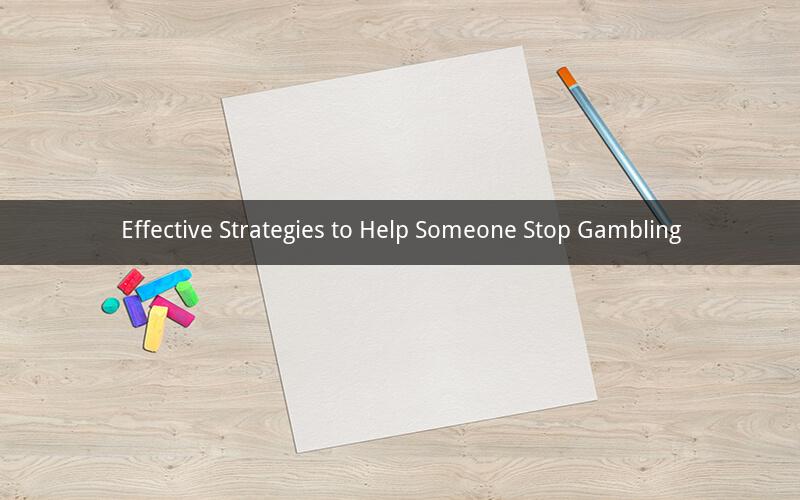
Gambling can be an addictive and harmful behavior that can have serious consequences for individuals and their families. If you're looking for ways to help someone stop gambling, it's important to understand the underlying causes and implement effective strategies. In this article, we will explore various methods to assist someone in overcoming their gambling addiction and provide answers to five common questions regarding the process.
1. What are the signs of a gambling addiction?
Signs of a gambling addiction can vary from person to person, but some common indicators include:
- Preoccupation with gambling thoughts
- Increasing the amount of money and time spent on gambling
- Feeling restless or irritable when not gambling
- Trying to stop gambling but being unsuccessful
- Borrowing money or selling possessions to fund gambling activities
- Lying to friends and family about gambling habits
2. How can you approach someone who you suspect has a gambling addiction?
Approaching someone with a gambling addiction can be challenging, but it's crucial to do so with empathy and support. Here are some tips for initiating a conversation:
- Choose a private and comfortable setting
- Express your concern without judgment or anger
- Use "I" statements to avoid placing blame
- Listen actively and acknowledge their feelings
- Offer your support and encourage them to seek professional help
3. What are some effective treatment options for gambling addiction?
Treatment for gambling addiction can vary depending on the severity of the problem. Some common treatment options include:
- Cognitive-behavioral therapy (CBT): CBT helps individuals identify and change negative thoughts and behaviors associated with gambling.
- Support groups: Joining a support group, such as Gamblers Anonymous, can provide a sense of community and support for those struggling with addiction.
- Family therapy: Family therapy can help repair relationships and provide education on gambling addiction for loved ones.
- Medication: In some cases, medication may be prescribed to help manage symptoms of depression or anxiety that may contribute to gambling addiction.
4. How can you help someone maintain their sobriety from gambling?
Helping someone maintain their sobriety from gambling requires ongoing support and encouragement. Here are some strategies to consider:
- Encourage them to attend support group meetings and therapy sessions regularly
- Create a safe and supportive environment at home
- Monitor their financial situation and help them develop a budget
- Encourage them to engage in healthy activities and hobbies
- Continue to offer your support and remind them of their progress
5. What should you do if someone you're trying to help relapses into gambling?
Relapse is a common part of the recovery process for gambling addiction. If someone you're trying to help relapses into gambling, it's important to:
- Remain calm and supportive
- Avoid shaming or blaming them
- Discuss the relapse and its underlying causes
- Reinforce the importance of seeking help and support
- Continue to offer your support and encourage them to return to treatment
In conclusion, helping someone stop gambling requires understanding the nature of addiction, providing support, and implementing effective treatment strategies. By addressing the underlying causes and offering ongoing support, you can help someone overcome their gambling addiction and lead a healthier, more fulfilling life.
Remember, overcoming a gambling addiction is a challenging process, but with the right approach and resources, it's possible to achieve long-term recovery. By exploring the signs of addiction, approaching the person with empathy, seeking appropriate treatment options, and providing ongoing support, you can make a significant difference in their journey towards recovery.